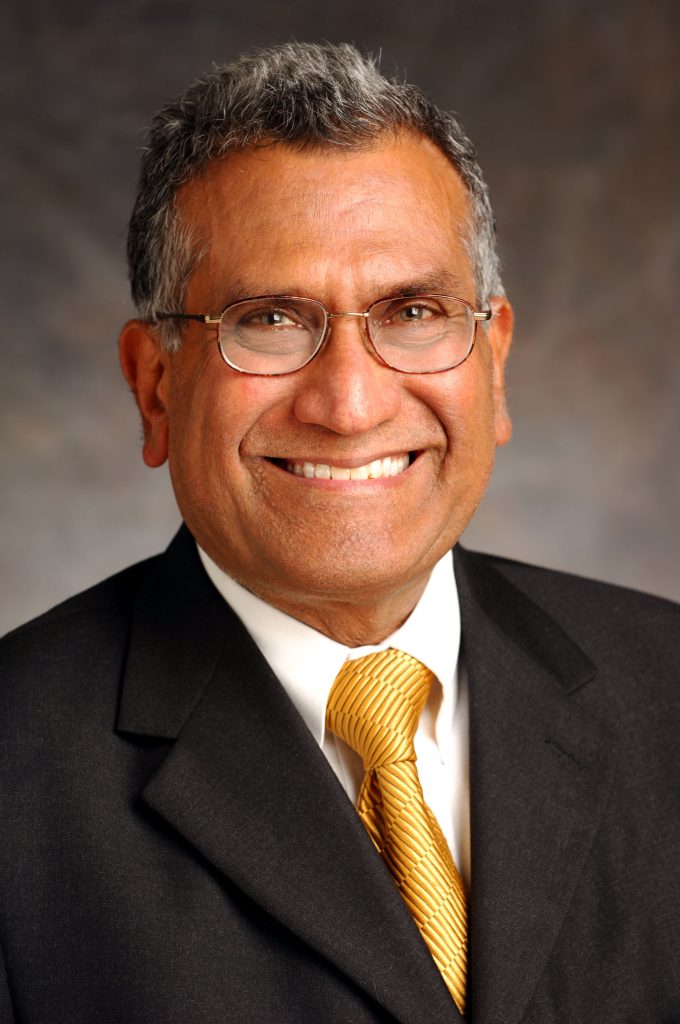Vijay K. Dhir
Class of 2017-18

University of California, Los Angeles
National Academy of Engineering
Lifetime Achievement Award
International Conference on Computational and Experimental Engineering
As leader of the Boiling Heat Transfer Lab at the University of California, Los Angeles (UCLA), Vijay K. Dhir conducts pioneering work in fundamental and applied sciences involving boiling, an efficient process of heat removal. Dhir is known for his work in microgravity heat transfer, two-phase heat transfer, thermal–hydraulics of nuclear reactors, and soil remediation. He managed experiments that flew aboard the International Space Station to assess how microgravity affects boiling.
Born in India, Dhir earned his doctorate from the University of Kentucky in 1972 and then joined the faculty at UCLA, where he served as vice chair and chair of the Department of Mechanical and Aerospace Engineering. He was appointed associate dean for academic and faculty issues for the Henry Samueli School of Engineering and Applied Science and served as the school’s interim dean until he was appointed dean in 2003 and held that position until 2016.
He is a member of the National Academy of Engineering, a fellow and honorary member of the American Society of Mechanical Engineers (ASME), and a fellow of the American Nuclear Society (ANS). The University of Kentucky inducted Dhir into its Engineering Hall of Distinction and presented him with an honorary doctorate in engineering.
Honors include ASME’s Heat Transfer Memorial Award in the science category, the Donald Q. Kern award from the American Institute of Chemical Engineers (AIChE), the Max Jakob Memorial Award from ASME and AIChE, the Technical Achievement Award of the Thermal Hydraulics Division of ANS, a Lifetime Achievement Award from the International Conference on Computational and Experimental Engineering and Sciences, and the 75th Anniversary Medal from the Heat Transfer Division of ASME.
Dhir was a member of the National Research Council’s Steering Committee on the Decadal Survey on Biological and Physical Sciences in Space, as well as the National Academy of Science’s committee Lessons Learned from the Fukushima Nuclear Accident for Improving Safety and Security of US Nuclear Plants.
He has written or co-written three books and more than 350 papers.
As a Faculty Fellow, Dhir will collaborate with faculty and students in the College of Engineering and the College of Science.
